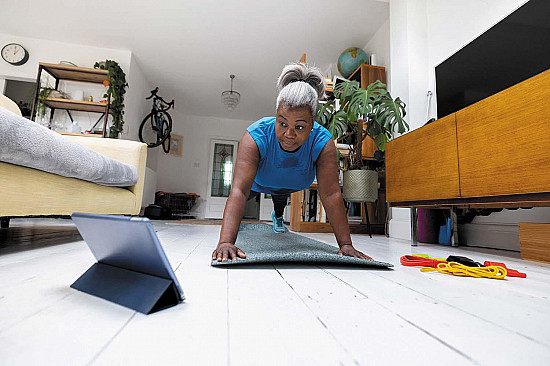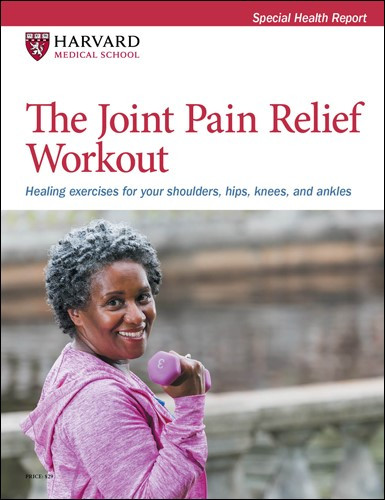How to avoid this common pickleball injury
Pickleball elbow is a type of tendinitis that causes elbow and arm pain and limits your ability to use your wrist and fingers.
- Reviewed by Anthony L. Komaroff, MD, Editor in Chief, Harvard Health Letter; Editorial Advisory Board Member, Harvard Health Publishing

The pickleball craze is going strong, with no sign of souring. The sport, which looks a bit like tennis, has people of all ages swinging paddles and socializing with teammates. Both of those activities score big points for health. Unfortunately, the game can also lead to injuries, especially when it comes to elbows. Pickleball elbow (also known as tennis elbow) can sideline you from playing the game and interfere with routine actions such as gripping a cup or turning a car key. But you can learn how to protect yourself on the court.
Understanding the injury
Pickleball elbow is a type of tendinitis called lateral epicondylitis. The injury can result from gripping a pickleball paddle (or another type of racquet) tightly for long periods or repeatedly twisting and turning your wrist as you prepare to hit the ball. The intense demand stresses muscles in your forearm (the extensors, which move your wrist and fingers) and creates tiny tears in the tendons attaching the extensors to your elbow.
The tendons are anchored on the outer side of the elbow, at a bony bump called the lateral epicondyle. That's where you feel the pain, tenderness, and weakness of pickleball elbow. Those symptoms can radiate to the forearm and wrist, weakening your grip.
Contributing factors
Lateral epicondylitis isn't limited to racquet sports players; it can develop from any other activity involving over-use of the extensor muscles, such as waxing a car. In pickleball, several factors often contribute to the injury:
Failing to prepare. Many people don't warm up their muscles before playing pickleball, and they don't stretch them afterward. That increases injury risk.
Relying on your forearm for power. "The strength of your swing shouldn't come from your forearm, but from the core muscles in your abdomen, the abductors in your hips, and the quadriceps in the front of your thighs. These muscles need to be conditioned to transfer strength to your arm," says Dr. Elizabeth Matzkin, an orthopedic surgeon with the sports medicine division of Harvard-affiliated Mass General Brigham.
Doing too much too soon. "I have many patients who play pickleball one time and enjoy it so much they begin playing it every day for hours at a time. They go from zero to 100 too quickly, and aren't ready for it physically, which puts them at a higher risk for developing pickleball elbow," Dr. Matzkin says.
Preventing pickleball elbow
Whether you're an experienced player or just thinking about picking up a paddle, Dr. Matzkin recommends approaching the sport carefully to avoid pickleball elbow. Here are her suggestions for doing that.
Beef up your muscles. Work with a personal trainer or physical therapist to improve the strength of your shoulder, arm, core, hip, and leg muscles.
Ease into it. "Don't play for three hours on your first day," Dr. Matzkin says. "Build your time on the court gradually."
Use the right grip size. The grip is paddle handle. Make sure it's not so narrow that you squeeze it too tightly.
Get some pointers. Honing your technique can help prevent pickleball elbow. For example, using two hands for a backhand swing reduces stress on your forearm. Get more tips by taking pickleball lessons or watching free videos on YouTube.
Warm up first. Take five minutes to march in place, do arm circles, and gently flex your wrists and elbows.
Stretch afterward. Stretch your shoulders, arms, and wrists.
Ice your elbows after a game, even if they don't hurt. This wards off inflammation. "Treat yourself like a real athlete," Dr. Matzkin says, "and treat your elbows like they're expensive equipment."
Best treatments for a painful pickleball elbowYou overdid it on the pickleball court, and now you're paying for it with pickleball elbow (a type of tendinitis). The condition can last up to a year. Fortunately, surgery is rarely required. "The most important thing to do is rest your arm, wrist, hand, and fingers on the affected side to let swelling and irritation subside, and allow the aggravated tendons time to heal. Also, stop playing pickleball for about six weeks," says Dr. Elizabeth Matzkin, an orthopedic surgeon with Harvard-affiliated Mass General Brigham. Other things you can do initially:
If pain doesn't go away, see an orthopedic surgeon for additional care. The doctor may prescribe corticosteroid injections or physical therapy. |
Image: © Microgen Images/Science Photo Library/Getty Images
About the Author

Heidi Godman, Managing Director
About the Reviewer

Anthony L. Komaroff, MD, Editor in Chief, Harvard Health Letter; Editorial Advisory Board Member, Harvard Health Publishing
Disclaimer:
As a service to our readers, Harvard Health Publishing provides access to our library of archived content. Please note the date of last review or update on all articles.
No content on this site, regardless of date, should ever be used as a substitute for direct medical advice from your doctor or other qualified clinician.
















